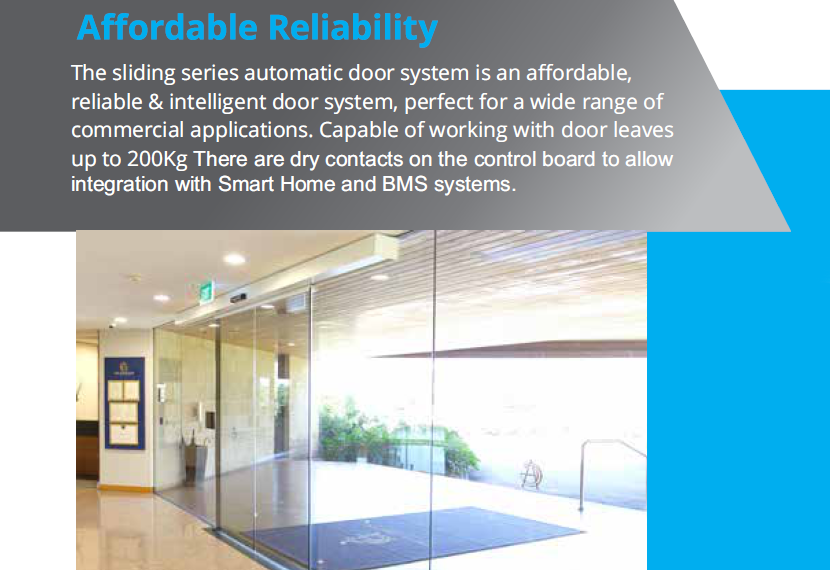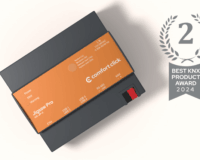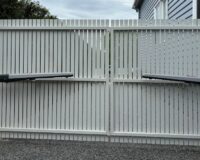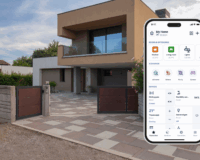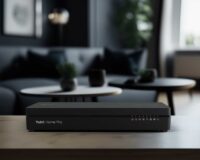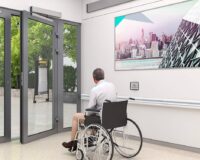Digital Home Systems specializes in supplying and installing swing and sliding toilet doors for individuals with disabilities, along with custom door controllers. Our specially designed controllers meet Australian standards and are both easy to use and install. We are also NDIS registered and can assist with any automatic door projects under NDIS.
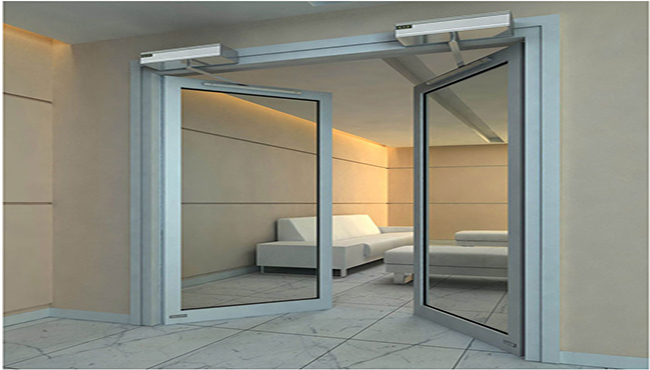
How the Disabled Door Controller Works
When entering, lights will show whether the toilet is occupied or vacant. If vacant, the door can be opened either by pressing the button or waving your hand in front of the touchless infrared sensor.
The door will remain open for a preset time before automatically closing. Once fully closed, users can lock the door by pressing the “internal lock button,” which will change the light outside to indicate it’s occupied.
The door stays locked until the user is ready to exit, at which point they can press the “internal open button” to unlock it. After closing, the door will not lock automatically, and the outside light will turn on to indicate it is vacant.
There is also a security override key switch on the external plate, allowing security personnel to assist in case someone is trapped inside.
Parents’ Rooms
This system ensures smooth and automatic access for parents with babies or small children, ideal for shopping center parents’ rooms. It works with both swing and sliding doors, and with added safety sensors, it ensures privacy and security. The door locks only once it is fully closed, reducing the risk of children accidentally locking themselves inside. Additionally, the external plate features an emergency key switch for security access if someone becomes trapped.
For more information or a quote, please contact Digital Home Systems at 1300 099 283 or email office@dhsys.com.au.
NDIS Support
Digital Home Systems also supports various NDIS projects, aiming to enhance accessibility and improve the daily lives of individuals with disabilities. By removing the physical barriers of traditional doors, automatic door systems increase independence, safety, and convenience. This article explores how automatic doors can ease everyday life for people with disabilities, the types of doors available, their features, and the importance of creating inclusive spaces.
Automatic doors provide an effective solution to these challenges by offering hands-free access to buildings, rooms, and other spaces. For individuals with disabilities, this means they can move through environments independently, enhancing their sense of autonomy. Here are some key benefits of automatic doors for people with disabilities:
Ease of Use: Automatic doors open and close without requiring physical effort. Activated by sensors or buttons, they eliminate the need to push or pull heavy doors.
Wheelchair Accessibility: Wide, clear automatic doors provide ample space for wheelchair users, ensuring smooth passage. The absence of thresholds or uneven surfaces minimizes the risk of accidents.
Mobility Support: For those using mobility aids like canes, walkers, or crutches, automatic doors eliminate the challenge of managing door handles while balancing. This ensures safer and more fluid movement.
Reduced Risk of Injury: Individuals with limited hand strength or dexterity may find it difficult to use traditional door handles. Automatic doors, which don’t require physical manipulation, help prevent strain or injury.
Hands-Free Operation: Many automatic doors are operated by motion sensors or touchless controls, providing a hands-free option for those who have difficulty using their hands or arms.
Automatic Doors for Disabled Access
Automatic doors provide modern convenience to any home, particularly for individuals with disabilities or the elderly, offering an effortless entry or exit.
NDIS Registered Automatic Doors for People with Disabilities
We offer a variety of cost-effective sliding door solutions that can be tailored to your specifications. With over 12 years of experience, Digital Home Systems specializes in providing automatic doors for people with disabilities. We have expertise in adapting existing homes and collaborating with builders to create more accessible homes or public buildings.
What’s the difference between automatic sliding door and automatic swing door system?
An automatic swing door is an electro-mechanical system designed to operate a door for pedestrian access.
It is simple to install and can be attached directly to an existing door. This type of door can be opened from both the inside and outside, making it convenient and easy to use. It is highly secure and can usually be easily configured and programmed to suit specific customer requirements. Additionally, these doors offer ample space and width since they don’t require side clearance for opening.
An automatic sliding door is a door system that uses an electromechanical mechanism to operate the door, causing it to slide open, pause, and then close automatically for pedestrian access.
Sliding doors are a highly popular type of automatic door, commonly used as the main entrance doors for commercial buildings.
These doors are particularly suited for locations with high pedestrian traffic, as they allow easy and efficient passage.
Why Install Automatic Doors in Your Home:
- Improved accessibility
- Increased home value and future-proofing
- Transform rooms into outdoor entertaining areas with just the press of a button


